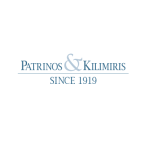During the COVID-19 pandemic, IP practitioners in Greece welcomed the new law on trademarks, under which Directive (EU) 2015/2436 was transposed into national law. There was no reason for any caution in this respect, since the implementation had been awaited since January 12 2019, which was the deadline for Greece to transpose the directive.
It is noteworthy that the new Greek law on trademarks deals with this matter. In the rear provisions of the law, it stipulates that trademark applications that have not been definitively accepted before the date when the new law comes into force, shall be considered pursuant to the trademark law previously applicable, unless such a trademark application was filed on or after January 14 2019.
This is essential information for trademark filers in Greece. This is because under the law previously applicable, all national trademark applications as well as all IP rights designating Greece, received an ex-officio examination both on absolute and relative grounds, while under the new law on trademarks, ex-officio examination is extended to absolute grounds only.
Since the new law on trademarks came into force much later than the above transposition deadline, i.e. on March 20 2020, there should be no issue with the retroactive effect of the above-mentioned provisions regarding trademark registrations. This means that a national trademark application or an IP right designating Greece filed after January 14 2019 should receive an ex-officio examination on the basis of absolute grounds only – correct?
Not correct, says the practice of the Greek Trademark Office. According to the practice of the office all trademark filings between January 12 2019 and March 20 2020 receive an ex-officio examination on both absolute and relative grounds.
This is an unexpected approach, the legitimacy of which will certainly be tested before the Greek courts in the near future. Hopefully, there will be more good news to welcome regarding the new law on trademarks in Greece.












